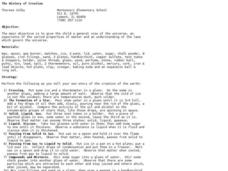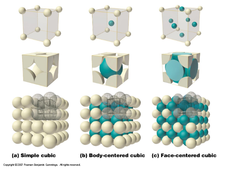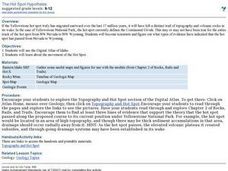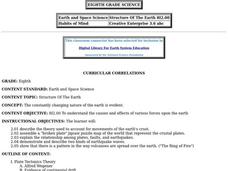Curated OER
I Got a Lava Livin' to Do in Pompeii
Scholars imagine themselves as citizens of Pompeii in 79 AD. First they are assigned a job (or place in society like a child or slave). Then they record their daily activities for the weeks leading up to the eruption of Mt. Vesuvius in...
Curated OER
Dating a Volcanic Eruption
Young scholars discover how to "read" tree rings to determine the date of a volcanic eruption and the effects an eruption has on plant growth. After a lecture/demo, students utilize a worksheet imbedded in this plan to date an eruption.
NOAA
Mapping the Deep-Ocean Floor
How do you create a map of the ocean floor without getting wet? Middle school oceanographers discover the process of bathymetric mapping in the third installment in a five-part series of lessons designed for seventh and eighth graders....
Curated OER
Regents High School Examination: Physical Setting Earth Science 2006
Test your class on earth science with this extensive resource. This test, created by The University of the State of New York Regents, is made up of 50 multiple choice questions and 32 short answer questions that cover the branches of...
Curated OER
Crater Creation
Students examine the Oregon state quarter and discuss how Crater Lake was formed-geologically and according to Native American legend. They practice making predictions and identifying the beginning, middle, and end of a story.
Curated OER
Island Formation
Students create models of how islands are formed by hot spots and then write a summary of their observations and of how they think their model relates to volcanic hot spots and island formation.
Curated OER
The Big Balancing Act
Pupils describe chemical changes occurring in hydrothermal circulation systems. They make inferences about the significance of these systems to ocean chemical balance compared to terrestrial runoff.
Curated OER
Erosion in Different Soils [Erosion Races]
Fourth graders review how erosion can happen by wind, water, and gravity which they studied in previous lesson. They attempt to discover if all soils erode at the same rate. In small groups, 4th graders experiment with three different...
Curated OER
Solid Earth Socratic Questions
Students participate in a whole class discussion to relate what they know about earthquakes to the processes of plate tectonics. They respond to prompts that lead them to conclusions about the layers of the earth.
Curated OER
The History of Creation
Students explore the properties of matter. In this lesson about matter, students will do a series of experiments to enable them to understand about creation of the universe. In these some of the experiments students will makes stars,...
Curated OER
The Great Wave
Students investigate tsunamis and how they are caused. In this natural disaster lesson, students discuss earthquakes, volcanoes, landslides and other causes of tsunamis. Students conduct an experiment in which they drop...
Curated OER
Plate Tectonics
Students use lecture, maps and video to analyze the distribution of earthquakes and volcanoes. They relate this distribution to the theory of plate tectonics and conduct several experiments to illustrate the forces at work in this theory.
Curated OER
How Big are Volcanic Eruptions?
Students explore volcanic eruptions. In this science lesson, students discuss the Volcanic Explosivity Index. Students use information from the index to answer questions.
Curated OER
A Visit to Southern Africa - Volcano
Students examine a cookie that represents pumice and lava in order to realize that lava is a composite of many rock particles. They compare and contrast pumice to the cookie by estimating, weighing, measuring and dissecting the cookie...
Curated OER
Chemical Volcano
Students observe a demonstration performed by the teacher. They examine of a series of acid/base reactions and discover how various indicators work.
Curated OER
Volcano Above the Clouds
Students develop a travelogue to describe the distinct ecological regions of Mount Kilimanjaro. Students simulate mountain climbing. They describe the health issues that may affect climbers, and any necessary equipment or safety...
Curated OER
The Hot Spot Hypothesis
Students use a digital atlas, geologic maps, and topography maps to explore geologic regions of Yellow Stone National Park. They locate evidence that support the theory of hot spots. Students research and explore the movements of Hot...
Curated OER
Living With Risk: The Human Element of Natural Disasters
Seventh graders research the Internet and the given websites to complete this lesson. In this investigating natural disasters lesson students complete several activities about natural disasters.
Curated OER
This Is Tanzania
Young scholars begin the lesson by locating Tanzania on a world map. While reading an article, they note what the author's opinion is of the people who live there and discover the connection the people have with the land. They examine...
Curated OER
Constructive and Destructive forces
Students explore constructive and destructive forces. In this constructive and destructive forces lesson, students complete a WebQuest. Students explore the different types of forces and their effect on the surrounding geography. When...
Curated OER
2005 Submarine Ring of Fire Expedition: What's for Dinner?
Students compare and contrast photosynthesis and chemosynthesis as sources of primary production for biological communities, and describe sources of primary production observed in biological communities associated with volcanoes of the...
Curated OER
Natural Selection: Exploring the 'Ohi'a Common Garden
Seventh graders examine natural variation by visiting the Ohi'a Common Garden in Volcano, Hawaii. In this natural selection lesson, 7th graders study background information about phenotypes, genotypes, and phenotypic plasticity before...
Curated OER
Structure of the Earth
Eighth graders examine the forces that are constantly acting on the Earth. They describe the theory of tectonic plates and demonstrate the two kinds of earthquake waves. They also examine the role of volcanoes in the structure of the...
Alabama Learning Exchange
Are You Prepared?
Pupils research specific natural disasters using the Internet and a collection of books. The natural disasters include; floods, hurricanes, tornadoes, tsunamis, winter stroms, wildfires, thunderstorms, volcanoes, and earthquakes. They...
Other popular searches
- Types of Volcanoes
- Volcanoes and Earthquakes
- Shield Volcanoes
- Erupting Volcanoes
- Science Project Volcano
- Composite Volcanoes
- Internet Research Volcanoes
- Volcano Word Search
- Volcano Math Lesson
- Volcanoes Earthquakes
- Caribbean Volcanoes
- Dome Volcano
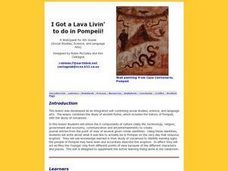
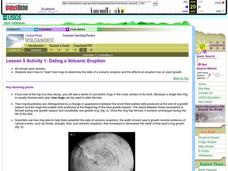



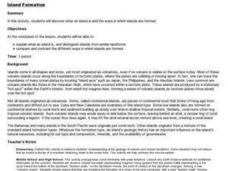
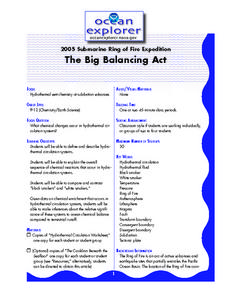
![Erosion in Different Soils [Erosion Races] Lesson Plan Erosion in Different Soils [Erosion Races] Lesson Plan](http://content.lessonplanet.com/resources/thumbnails/140405/large/cgrmlwnvbnzlcnqymdezmdmyos01nde3lxfmmzy0dc5qcgc.jpg?1414240121)

